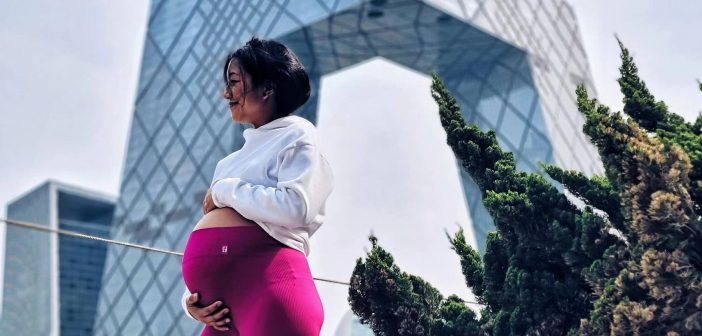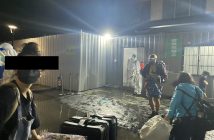The day after she gave birth, Gemmicah Argonza got the call.
“Did you go to the 7-11 in the basement China World on April 28?” The voice on the line said, “A positive COVID case was found there.”
Her mind raced: Was she there on the 28th? Would she have to go to central quarantine? What about her husband? What would happen to her daughter? Would they take her too?
It’s the call no one wants to get, much less if they’ve literally just had a baby.
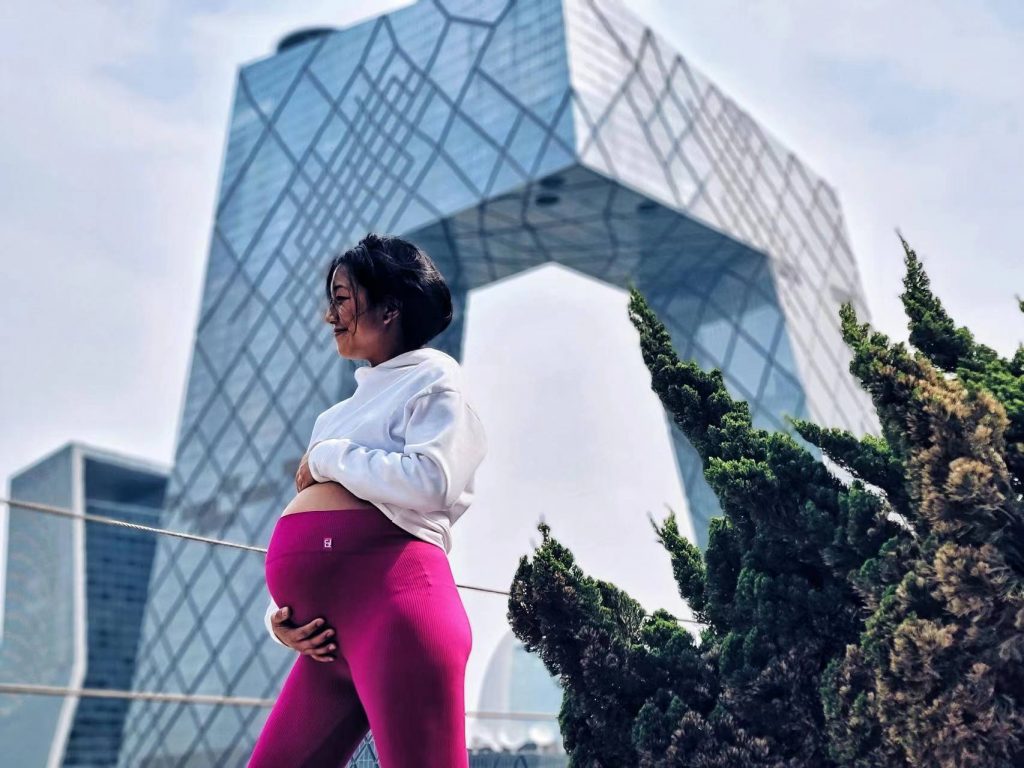
In a way, they were prepared for the worst.
A Philippine native, Argonza ran the only Filipino restaurant in the city, Mesa Madre, located in Jianwai Soho. Her husband, Clifford Weiner, was General Manager of Hotel Jen. Both of them were smack in the middle of the Central Business District – an area that would soon be swept up in the citywide COVID lockdown.
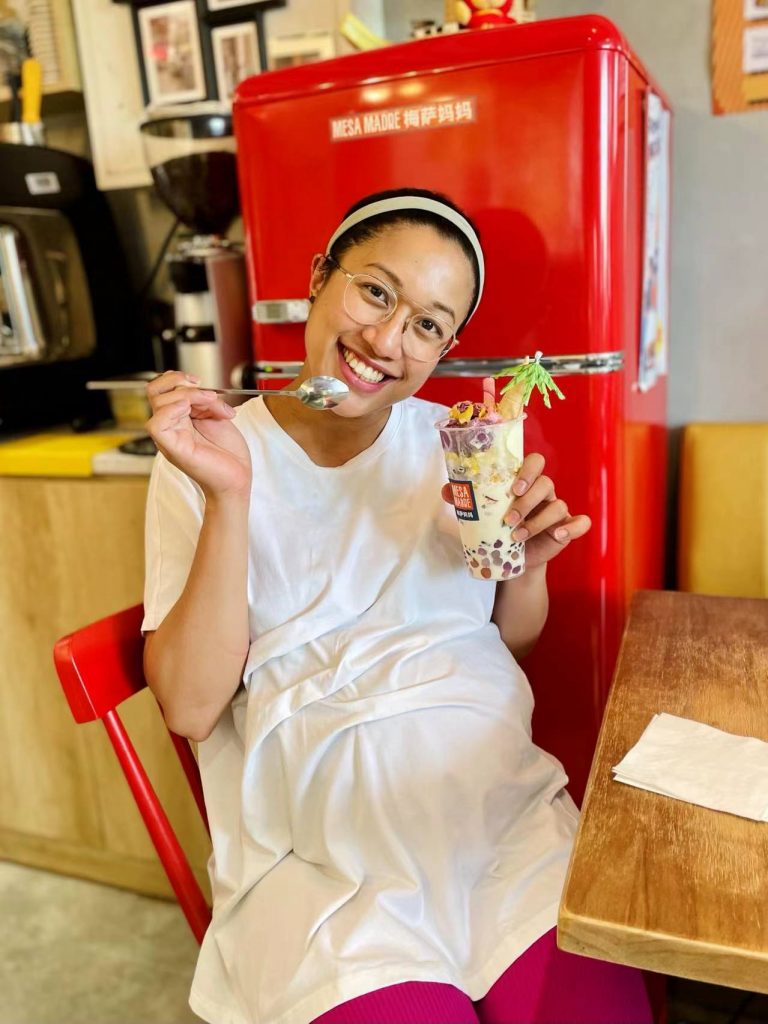
Before lockdown: Argonza enjoying Mesa Madre’s Halo-Halo, a Filipino desert
From mid-April, both Argonza and Weiner watched with trepidation as the cases in Beijing grew at a worrying pace, and communities in Panjiayuan, Shuangjing, and Jinsong – just a mile south of them – were closed off one after another.
“We had seen what happened in Shanghai, and we worried it would happen here,” Argonza recalls. News of quarantine shelter conditions, parents being separated from children, and lack of access to supplies were everywhere.
As she was due on April 28, they stocked up on a month’s worth of supplies. “I kept saying, ‘C’mon baby, come out already,’” Argonza recounts. “The last thing I wanted was to give birth in the middle of a lockdown.”
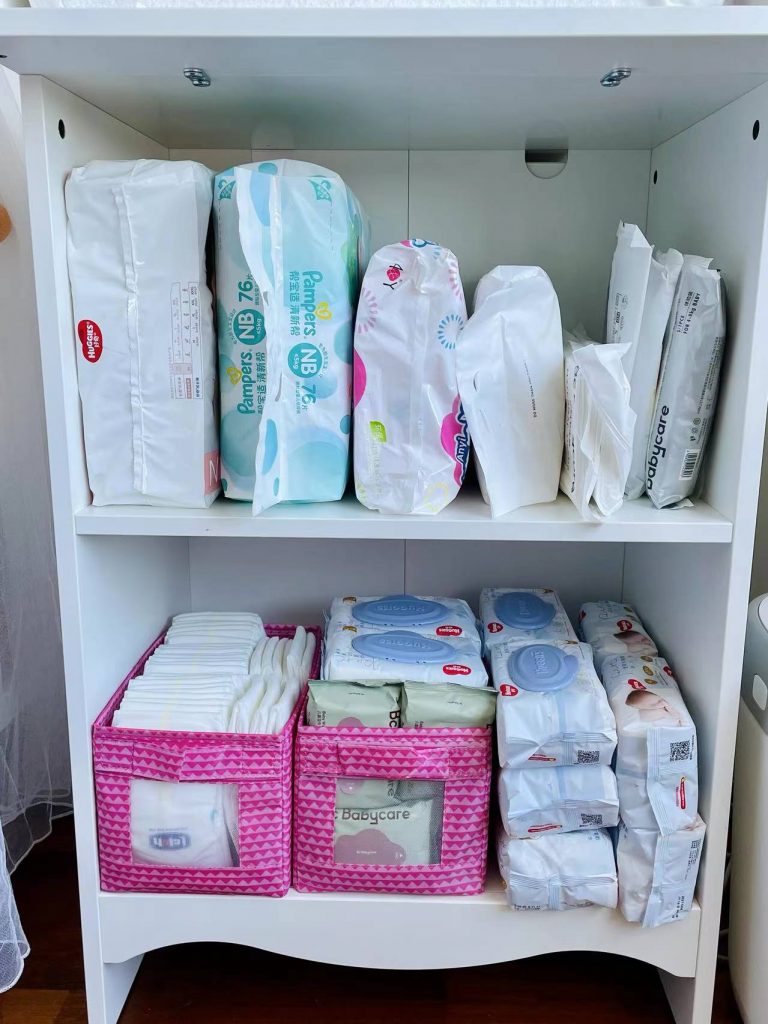
Argonza’s stock of baby supplies
The couple also decided to pack up and move into Hotel Jen. “Communities get locked down in the middle of the night without any warning, but as Hotel Jen’s General Manager, Cliff knew he would have some notice if the hotel was going to lockdown,” Argonza says. “So there could be a chance for us to make a decision to go to the hospital if that happened.”
Fortunately for the couple, it never came to that. On May 5, seven days after she was due, the contractions started. Argonza and Weiner rushed to the hospital, and, in the early hours of May 6, Allegra Weiner was born.

The day after giving birth, Argonza was discharged from the hospital. Things had gone smoothly, and Argonza felt good.
But as soon as the couple arrived home, the call from the CDC came.
“In the first phone call, it was almost as if they weren’t sure if I was at the 7-11,” she recalls. Six phone conversations later, the CDC finally confirmed that there was a payment linked to her at 2:45pm on April 28. The positive case was estimated to have visited the same 7-11 between 1-2pm that day. The timeframe was too close. This made Argonza a close contact – she and Weiner had to quarantine.
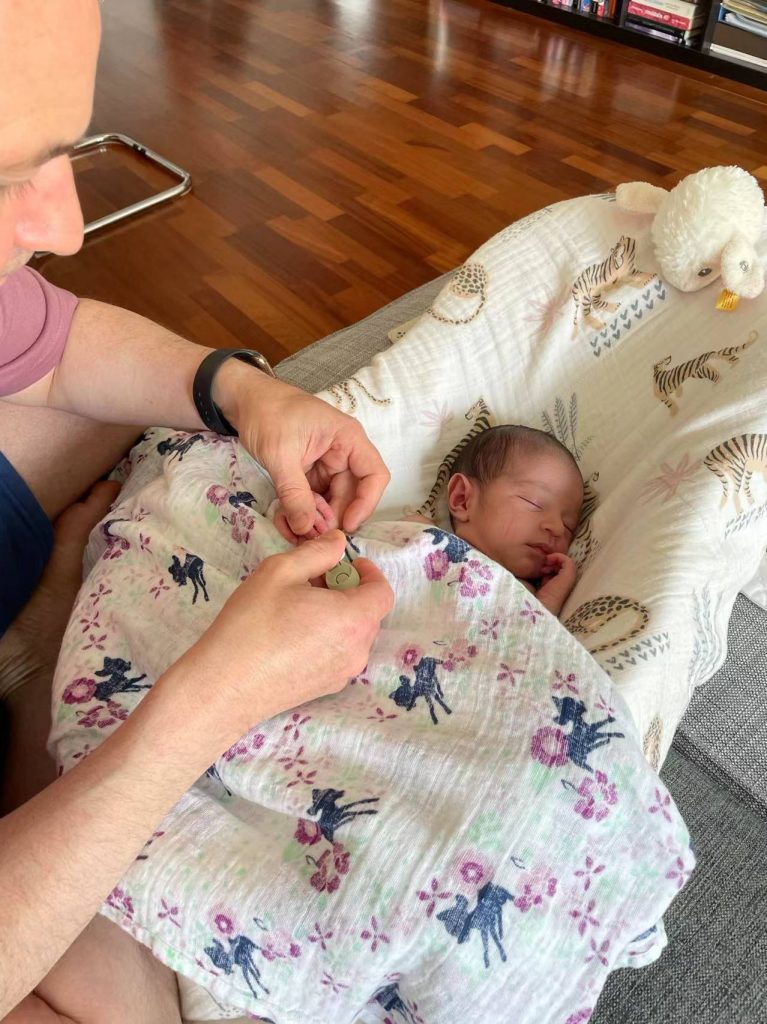
“I tried explaining that I’d taken COVID tests every day since the 28th, and that they were all negative” she says. “But it didn’t matter.”
At some point in the back and forth calls, Weiner told the CDC that Argonza had just given birth. “It seemed they didn’t expect this,” she recalls. A few hours later, a bit of good news came: they would only be required to do home quarantine.
Did her recent childbirth affect her quarantine requirements? “I don’t know, honestly,” Argonza says. “I was just really relieved to hear that.”
A CDC team came to install the alarm on their door, and set up a WeChat group that included the couple, a colleague who served as translator, and multiple people from what Argonza assumed was the CDC’s team. They were given instructions for deliveries, trash disposal, and doing both the CDC administered COVID tests as well as the COVID home-testing kits.

One of the challenges the couple faced was getting Allegra to her first two check-ups, which were within the first two weeks after birth.
Because Argonza’s health code was yellow, she had to navigate getting permission from both the hospital and their CDC handlers to make it happen.
“BJU knew what to do,” she says. “They would receive me not in pediatrics but in their fever clinic, and the doctor would be sent based on their internal protocols,” With the CDC, on the other hand, they had to negotiate the terms for traveling. “They finally agreed to have me take Allegra alone in a car, with a driver dressed in full PPE.”
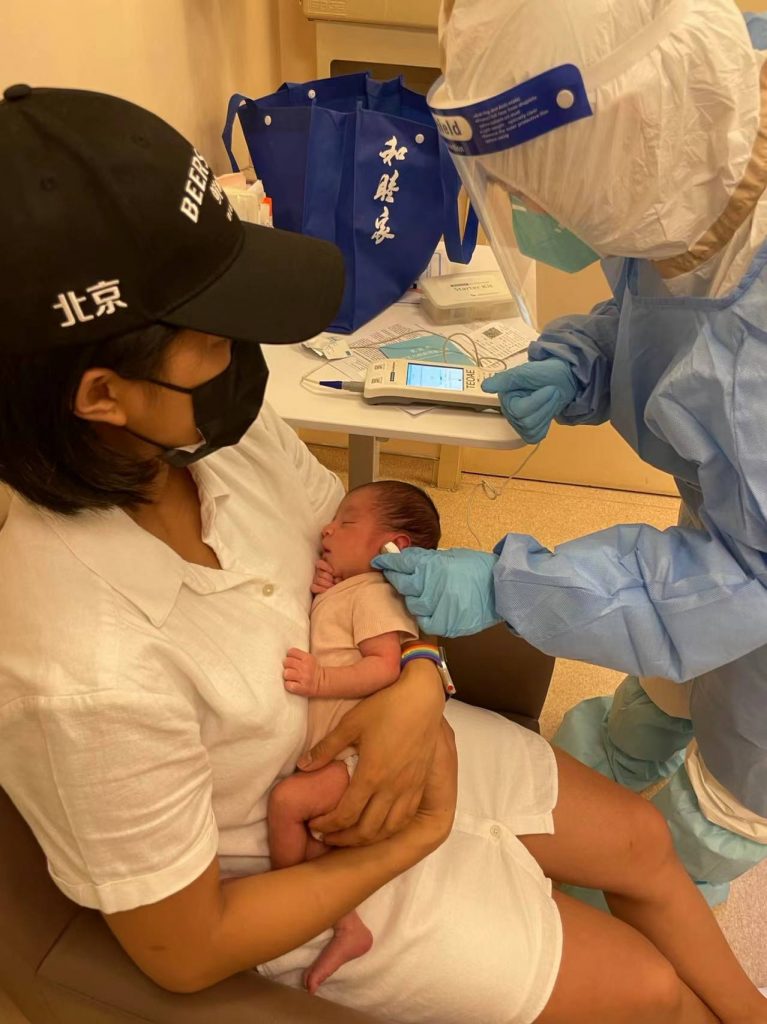
“While it’s frustrating to be locked down, at least my husband is able to spend more time with our daughter,” Argonza muses. “It’s a good that’s come out of this whole situation, and I’m happy for it.”
Looking forward, the couple are most pained at how travel restrictions will prevent them from having Allegra meet their families. “I’m the eldest, so seeing my daughter would mean a lot to my parents,” Argonza says. “But we can’t do that for now.”
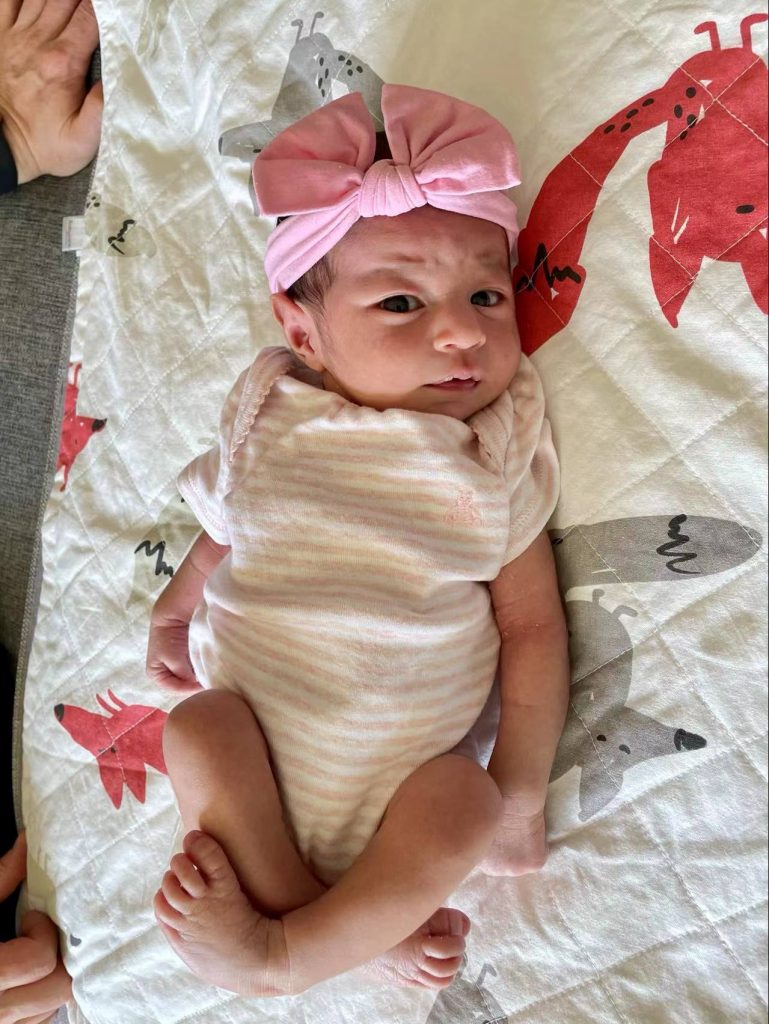
Asked if this might be an impetus for them to leave for good, as many expats have done, she responds, “When I’m frustrated in the moment, sometimes I do want to pack up and leave.”
“But at the same time, I love Beijing,” she says. “And my life, my business and my community are here. And I think Beijing is a good place for a child to grow up, especially in her early years. It’s a good place for our family to be.”

KEEP READING: What If I Go Into Labor During Lockdown?
Images: Courtesy of Gemmicah Argonza

